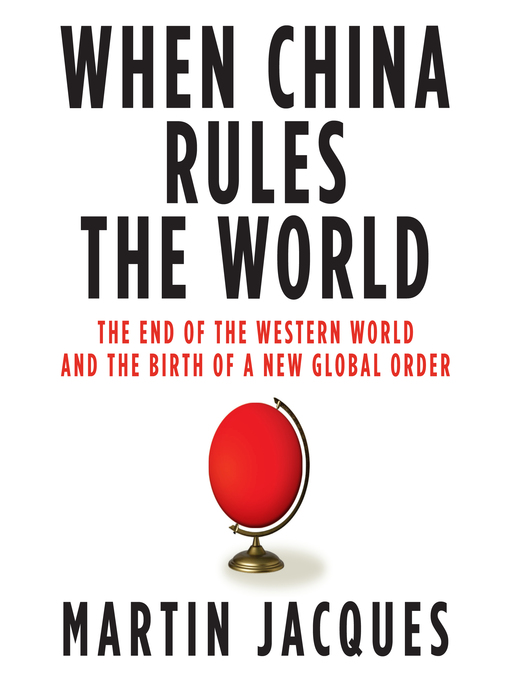China embraces its surveillance state. The US pretends it doesn’t have one



China is open about its surveillance dystopia. In America, we pretend Palantir isn’t worse.
The parallels between how the two countries control their minority populations via technology are chilling. In China, no one has yet to emerge from the Communist Party’s largest concentration camps(sorry, “re-education” camps) in the northwest province of Xinjiang, said to be holding 1 million people. Suspected subversives are captured by an all-pervasive digital dragnet integrated with Smart City data and a grid of checkpoints, which creates a prison state to oppress Islam. The checkpoints allow police to ensure that that the Muslim ethnic minority of Uighurs have a government app installed on their smartphones that transmits all their data, allowing law enforcement to patrol Islamic religious practices.
Meanwhile, ethnic divisions are cleaving America into a democracy on the brink. Righteous outrage opposes cultish defense over the semantics of “concentration camps” here on the US/Mexico border, fueling a furious debate over ongoing family separation and torture-grade conditions for unaccompanied children. The US immigration apparatus has failed to maintain adequate records of detainees and separations, and proposals of forced DNA sampling have been floated. Our nation’s cruelty-as-deterrent policy against the influx of refugees fleeing failed states harkens America back to its interment days and our own penchant for human-rights abuses.
We’re understandably reluctant to zoom in on our own signature style of abusing privacy and autonomy for profit. Pointing at China’s oppression of the Uighur peoples makes us feel better about the caged baby asylum seekers, all alone in Texas, wearing weeks-old diapers under 24-hour fluorescence on cold concrete. But ignoring the problem at the border doesn’t fix it.
The searing images and incomprehensible atrocities at our border today are animating America’s political emotion. Compare this to China, where an astonishing scale of censorship allows the Party to shield the population from news about its prison state in Xinjiang.
But that doesn’t mean that the US isn’t busy engineering its own digital surveillance state. It’s just doing a better job of camouflaging it, so we can go on pretending to be the land of the free.
Free speech doesn’t equal freedom
Here in the US, the digital censorship machine is brutally efficient at marketing itself as a free-speech platform while keeping things safe for advertising profits.
The farce relies on legions of outsourced content moderators in sweatshop conditions who scrub and clean services like Facebook and YouTube of unimaginable volumes of unspeakable violence, explicit pornography, and incendiary hate. Both Amazon and Google transcribe audio files from their customers’ smart speakers for algorithmic training purposes. And Amazon has hired a news editor to gather local crime stories from its connected doorbell camera platform, Ring, to create crime news intended to induce fear in consumers—and therefore install more Amazon home-surveillance gear.
Suppliers cash in on billions in contracts to provide logistics for the growth industry of internment. From foil blankets to cloud-computing storage and the face masks worn by agents to stifle the stench of unbathed people overcrowded in cages for 40 days, American companies are getting into the business of migration management.
Palantir, the big data analytics contractor for big government that is currently positioning for IPO, is a uniquely concerning profiteer from the war on immigrants. Founded by vaunted venture capitalist and ultra-libertarian Peter Thiel and self-described socialist CEO Alex Karp, Palantir’s data and software help power Trump’s deportation force by unifying disparate data sources into user-friendly apps. For example, agents can easily cross-reference data points like license-plate cameras to court documents, helping power the largest data-driven immigration dragnet ever—all with the efficiency of ordering an Uber.
ICE agents are now storming sanctuary cities asking for papers, and they’re equipped with Palantir apps to tap into surveillance networks and massive machine-learning data pools. Their goal? To pinpoint targets for deportation with a UX seemingly optimized for ethnic cleansing. And it doesn’t come cheap. A Palantir product called FALCON costs taxpayers $39,000,000 for an immigrant-tracking database.
While it has been reported that Palantir has contracts to provide ICE with its data-driven deportation tools, it has not been widely reported that Palantir also had a contract with the Census Bureau from 2016-2018. This was during the time that the Commerce Department would have been developing its plan to deploy the very first digital census.
We don’t know exactly what Palantir has been doing for the Census Bureau, and that’s exactly why we should try to find out. However, given Palantir’s contractor status, we shouldn’t have much confidence in a FOIA process, which is the Freedom of Information Act to legalize government transparency. It’s hard to imagine getting back anything other than a redacted block of black from an official information request, the dreaded Section 552(b)(4) exemption that protects “trade secrets” and other confidential corporate information.
The Census has been mired in fear, uncertainty, and doubt over Trump’s insistence that a citizenship question be added, despite being blocked by the Supreme Court on a technicality. While there’s no longer enough time for the citizenship question to make it into the 2020 Census, the president has instructed his administration to identify alternative data sources to arrive at some kind of approximation of citizenship status data.
Title 13 of the US Code prohibits Census data from being used for law enforcement purposes. But given that Palantir has contracts for both the Census Bureau and immigration agencies, we will be relying on the ethical integrity of private contractors to have confidence that Title 13 will not be violated. The result of this would be the Trump administration achieving its explicit goals of deporting undocumented immigrants at unprecedented scale.
Unfortunately, public trust in Palantir is scant. After all, it was a Palantir employee who helped build the notorious and illegal Facebook data-harvesting scheme that allowed Cambridge Analytica to harvest 87 million accounts and then match 30 million accounts to registered voters for advertising surveillance, political profiling, and precision microtargeting. It’s what these folks do for a living.
Is that really so different from China’s social credit system?
The future of freedom
The US and China’s digital surveillance states sound like an episode of Black Mirror until you start poking around in the privacy policies that everyone ignores; Experian, Axciom, Oracle, Equifax, and countless other mysterious data brokers have been stealing and selling our secrets for years.
No doubt, there are profound differences between our plutocratic constitutional republic and China’s single-party autocracy. We enjoy the rights to criticize our government and investigate how it conducts its business of implementing policy enacted by elected representatives. But these rights must be vigorously exercised.
Witnessing the protests in Hong Kong over a controversial extradition bill revealed to the world just how much Hong Kongers value their autonomy from Beijing. But as Americans grapple with the manufactured crisis on the border and an ongoing tech-lash emanating from Silicon Valley, Palantir somehow symbolizes the fragile distinction between a patriotic software company building products to hunt terrorists and fight crime and an instrument of a despotic regime.
In that way, Washington and Beijing have something in common now. Both centers of power mobilize the national tech industries to solidify state power, sow ethnic division and oppression, and have ensured that the 1% enjoy maximum privacy protections while the populace enjoys none.
As an American, you might think twice about bringing your phone on a trip to China.
No comments:
Post a Comment
Comments always welcome!